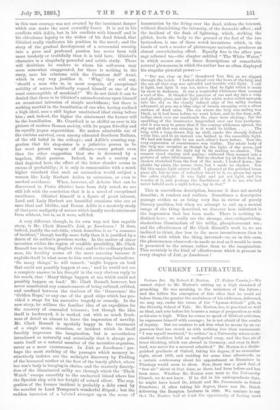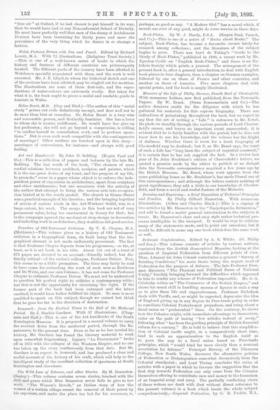CURRENT LITERATURE.
Verbum Dei. By Robert F. Horton. (T. Fisher Unwin.)—We cannot object to Mr. Horton's setting up a high standard of preaching. He was speaking to the ministers of the future ; and the loftier the conception of this office that he could set before them, the greater the usefulness of his addresses, delivered, we may say, under the terms of the " Lyman-Abbott" gift, in the Divinity School of Yale. Mr. Horton, too, is practical as well as ideal, and sets before his hearers a range of preparation as wide as his aim is high. When he comes to speak of Biblical criticism, he expresses himself with courage; he is not afraid of the results of inquiry. But we venture to ask him what he means by an ex- pression that has struck us with nothing less than amazement.
I was myself nurtured," he writes," in a University where eccle- siastical tradition held an undisputed sway, and the free air of truer thinking, which was abroad in Germany, and even in Scot- land, was never for a moment admitted." Mr. Horton is a distin- guished graduate of Oxford, taking his degree, if we remember right, about 1878, and residing for some time afterwards, as a certain controversy about his appointment as Examiner in Theology would seem to show. Now, there was a good deal of "free air" about at that time, as there had been before and has been since. Whether Mr. Horton ever went to the University Church, we do not know. If he did in his undergraduate days, he might have hoard Dr. Abbott and Mr. Freemantle as Select Preachers ; if, after taking his degree, there was Dr. Hatch delivering the Hampton Lectures in 1850. We venture to say th.tt Ma Horton had at knot the opportunity of feeling more
"free air" at Oxford, if he had chosen to put himself in its way, than be would have had at any Nonconformist School of Divinity. He must know perfectly well that men of the stamp of Archdeacon Denison have been lamenting for thirty years and more the prevalence of the very thing which he denies in so strange a fashion.



































 Previous page
Previous page